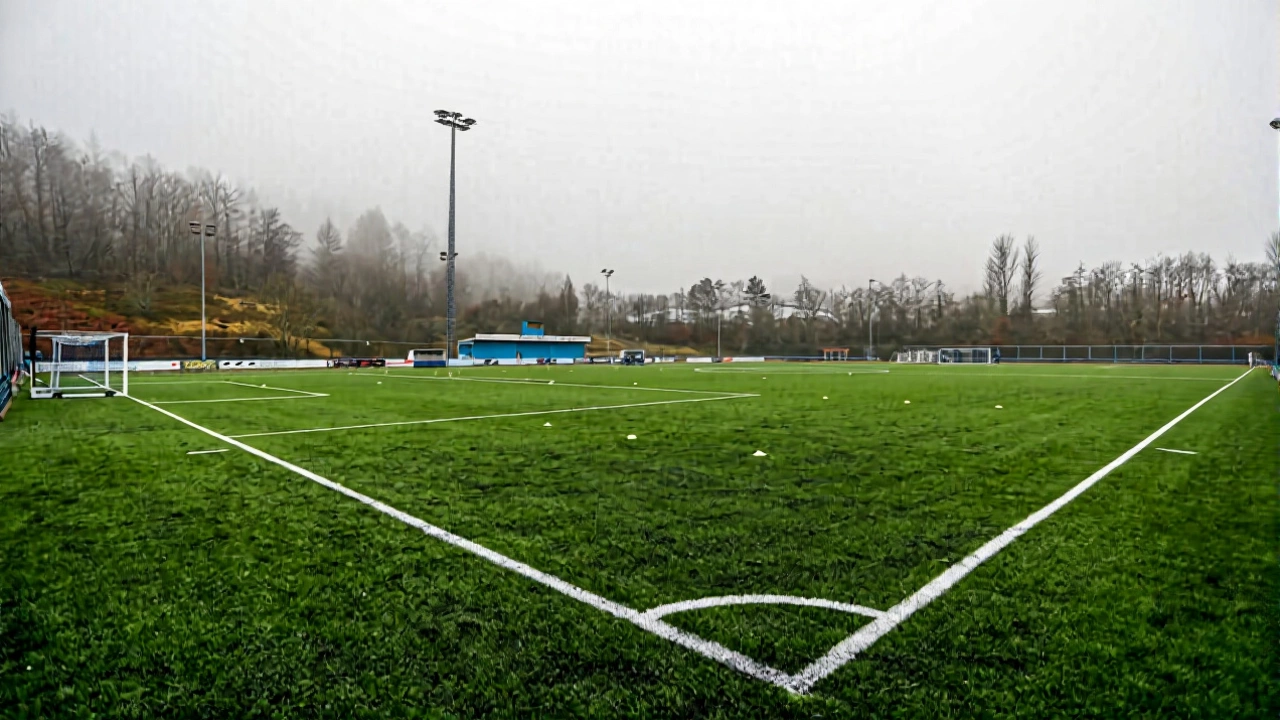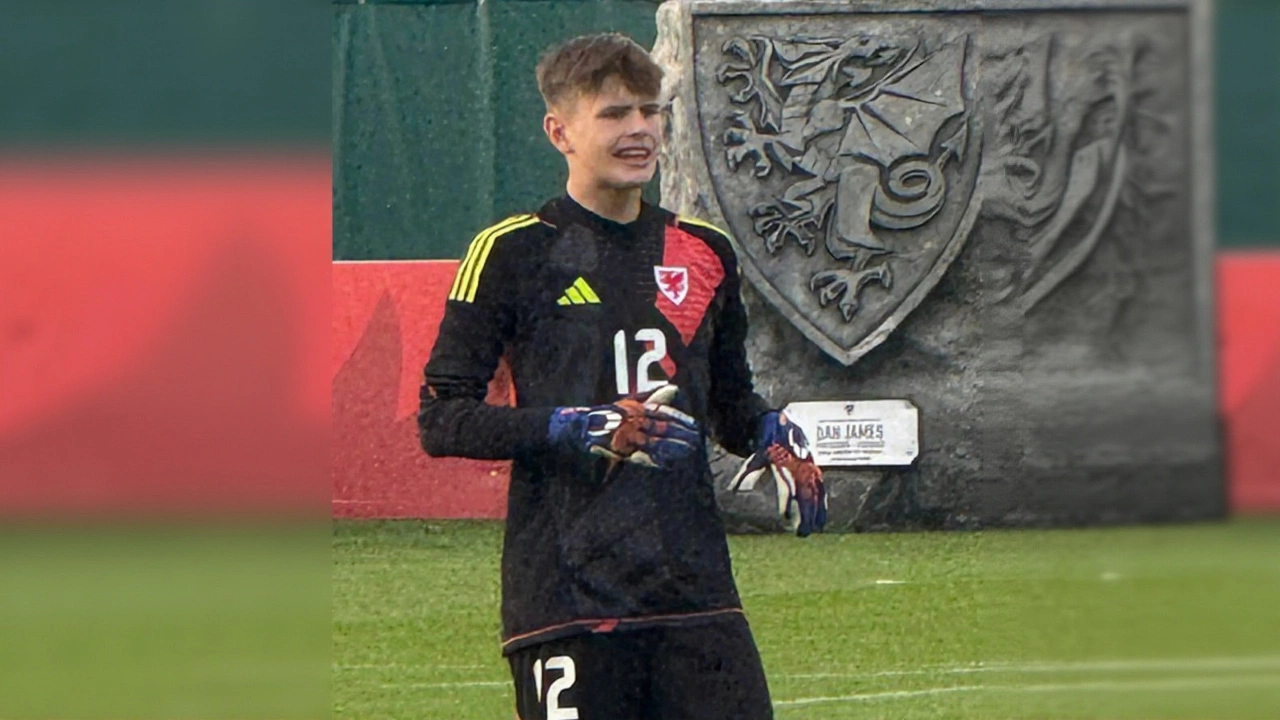When Leo Folley, a 14-year-old goalkeeper from Cheltenham Town FC’s Academy, received a call-up to the Wales Men’s Under-15 national squad, it wasn’t just another developmental milestone — it was a puzzle. The announcement, made public on November 21, 2025, on Cheltenham Town’s official website, celebrated Folley’s recognition by the Football Association of Wales (FAW). But here’s the twist: while Cheltenham lists him as a goalkeeper, the official Wales U15 squad page on worldfootball.net categorizes him as a defender. No one has explained why.
A Call-Up With a Mystery
Leo Folley, born in 2011, is still a year away from turning 15 — meaning he’s eligible for the U15 squad through the 2025 calendar year. His inclusion marks a significant step in his career. Cheltenham Town FC, a Category Three Academy under England’s Elite Player Performance Plan (EPPP), has long been known for nurturing local talent. Folley, who joined their youth system as a child, has reportedly impressed coaches with his reflexes, command of the box, and calmness under pressure — classic traits of a top-class goalkeeper.
But the Wales U15 roster, updated as of the 2024-2025 season, lists him as a defender. That’s not a minor error. It’s a red flag. Goalkeepers and defenders play fundamentally different roles. A keeper organizes the backline from behind; a defender does it from the front. The positional mismatch raises questions: Did Folley switch positions? Was it a data entry error? Or did Wales’ selectors see something in his game that even his own club hasn’t acknowledged?
The Squad and the Staff Behind It
The Wales U15 squad, governed by the Football Association of Wales and operating under UEFA’s youth development framework, includes other notable names. Tom Alcock, a 15-year-old from Stoke City Football Club, is listed as a teammate. Born on January 6, 2010, Alcock is already a year older than Folley — a common dynamic in youth squads where age eligibility cuts off at the end of the calendar year.
The team’s coaching staff is led by Assistant Manager Matthew Williams, born November 5, 1982. His contract with the FAW runs from July 1, 2024, to June 30, 2025 — meaning he’s wrapping up his tenure as Folley’s call-up lands. That timing is curious. Was Williams involved in selecting Folley? Did he see something in a regional trial? Or was this a decision made by his predecessor? The FAW hasn’t responded to requests for clarification.
What This Means for Folley’s Future
This isn’t just about a training camp. It’s about pathways. The FAW has spent decades building a youth pipeline that feeds into the senior national team — from U15s to U21s, then to the senior squad. Players like Gareth Bale and Aaron Ramsey didn’t leap straight to the top; they climbed through these exact tiers. Folley’s call-up, regardless of position, puts him on that ladder.
For Cheltenham Town, it’s validation. Their Academy doesn’t produce Premier League stars every year, but consistent international recognition — especially from a rival home nation — signals they’re doing something right. The club’s EPPP Category Three status means they receive funding and resources to develop players like Folley, but they don’t get the same exposure as Category One academies. This call-up could change that.
And for Folley? He’s now part of a system that’s watched by scouts across the UK. Even if he’s listed as a defender, he’s still a goalkeeper by training. That duality could be an advantage. Modern football increasingly values versatile players — keepers who can play with their feet, defenders who can distribute. Maybe Wales sees him as a future sweeper-keeper. Maybe they’re experimenting. Or maybe, as one youth coach in Cardiff quietly suggested, “They just misread the form.”

The Bigger Picture: UK Youth Football’s Complex Identity
Here’s the thing: young players in the UK can represent any of the four home nations if they qualify by birth, ancestry, or residency. That’s why a boy raised in Gloucestershire can play for Wales. It’s not unusual. But it does create tension — especially when clubs and national teams aren’t aligned.
Cheltenham Town, as an English club, has no control over Folley’s international choice. But they’re proud of him. And rightly so. His call-up reflects the interconnected nature of British football — where talent flows across borders, and identities aren’t always neatly defined.
The training camp referenced in the August 11, 2025 announcement? Still no dates. No location. No opponents. Just the promise of a chance to train with the best in his age group under the FAW’s watchful eye. If Folley performs, he could earn a cap in one of the U15 friendlies scheduled for early 2026. If not? He’ll still be back at Jonny-Rocks Stadium, training with his teammates, learning, growing.
What’s Next?
Expect pressure to mount on the FAW to clarify Folley’s position. If he’s listed as a defender, does that mean he’s being transitioned? Or is this a clerical error that needs fixing? Cheltenham Town has not commented further since their initial announcement. Meanwhile, Folley’s family and coaches are reportedly keeping a low profile — a wise move in the high-stakes world of youth football.
One thing’s certain: this isn’t over. Whether he plays as a keeper or a defender, Leo Folley is now on the radar of national selectors. And in football, once you’re on that list, your future changes.
Frequently Asked Questions
Why is Leo Folley listed as a defender when he’s a goalkeeper?
The positional discrepancy between Cheltenham Town FC’s listing and the Wales U15 squad’s official roster remains unexplained. It could be a data entry error, a tactical experiment by Wales’ coaches, or a sign Folley is being evaluated for a hybrid role. No official statement has been issued by either club or the Football Association of Wales.
Can a player from England represent Wales at youth level?
Yes. Under FIFA rules, players can represent any of the four UK home nations if they have a parent or grandparent born in that country, or if they’ve lived there for at least five years before turning 18. Folley’s eligibility suggests Welsh ancestry, though his exact background hasn’t been disclosed.
What’s the significance of Cheltenham Town’s Category Three Academy status?
Category Three academies in England’s EPPP system receive funding to support player development but have smaller budgets and fewer resources than Category One clubs. Folley’s call-up is a major achievement for Cheltenham, proving their youth program can compete with bigger academies in producing international talent.
When will the Wales U15 training camp take place?
The exact dates and location of the training camp have not been released. The call-up was announced in November 2025 for an "upcoming" camp referenced since August 2025. Given the FAW’s contract cycle ends June 30, 2025, the camp likely occurred in late 2025 or early 2026, possibly as part of pre-season friendlies ahead of the 2026 U15 qualifiers.
How common are positional mismatches in youth international squads?
They’re not rare. Youth scouts often evaluate players in multiple roles, especially at U15 level where physical development varies widely. A tall goalkeeper might be tried as a center-back; a creative midfielder might be shifted to full-back. But a goalkeeper being listed as a defender without explanation is unusual — and warrants follow-up.
What happens if Leo Folley plays for Wales U15?
Once a player represents a national team in an official competitive match at youth level, they become tied to that association for senior football — unless they file a one-time switch with FIFA. But since this is a training camp, not a capped match, Folley remains eligible to represent England at senior level if he chooses — giving him flexibility in his future.
